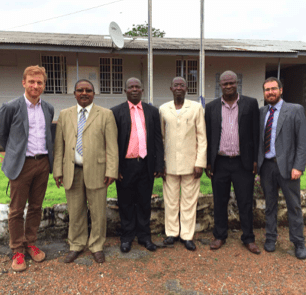University College London (United Kingdom)
“As a Beacon for Public Engagement, UCL has led the way to change the culture of higher education institutions to ensure that public engagement is a rewarded and recognised activity. UCL’s Public Engagement Unit has been successful in creating a structure and model for public engagement, and in addressing many barriers traditionally faced by higher education institutions undertaking public engagement. Our 20-year institutional strategy, UCL 2034, sets out our ambitions to be an accessible and publicly engaged university which is firmly located within our local community. UCL 2034 emphasises our responsibility to contribute effectively to society and our local community our commitment to being permeable to, and interactive with, the public in order to encouraging dialogue that will inform our activities”. – Michael Arthur, President and Provost of University College London
UCL is an open, publicly engaged university. We value collaboration, partnership and dialogue to maximise our collective impact in society, now and in the future.
Public engagement is essential to achieving UCL’s core mission of transforming how the world is understood, how knowledge is created and shared, and how complex problems are solved. Public engagement is a key pathway to enhance the university’s impact in society, and a route to inform and influence public discourse. Building upon UCL’s history, experience and knowledge, the challenge is to embed and sustain a culture in which staff, students, departments, and the institution as a whole proactively listen to and engage with communities. UCL’s distinctive public engagement will be characterised by three things:
- A focus on collaborative models of engagement;
- Involvement of diverse public groups, particularly those whose voices are heard less often;
- A spirit of experimentation from which learning can emerge.
In this way, UCL will play a leading role in creating a culture of sharing within the higher education sector and beyond.
At UCL, we already have outstanding researchers who have blazed a trail in forging their own relationships and developing standalone public engagement projects — but we are now thinking how much more we could achieve, and how much faster, if we had institutional platforms in place to connect staff and students with our local communities in Camden and Olympic Borough communities. We have recently piloted a programme called the Evaluation Exchange which has the potential to transform the way we connect UCL researchers and voluntary sector organisations across London.
2018 marks the tenth anniversary of UCL’s Public Engagement Unit — a date to celebrate together, to pause and reflect on what we have collectively achieved in the last decade and to start a conversation about where we want to get to by 2028.
Example of UCL Public Engagement initiatives:
Extreme Citizen Science (ExCites) engages in a remarkable range of public engagement. Indeed all of its research could be said to be equally a form of public engagement as it fosters and carries out research in collaboration with the public. Its current projects are Do it Together Science (DITOs) – a European-wide project focused on promoting change in the way the public engages with science and innovation through Citizen Science.
Sierra Leone Urban Research Centre (SLURC) Dr Andrea Rigon
The Bartlett Development Planning Unit
Early Career Researcher Award
 Andrea co-founded the Sierra Leone Urban Research Centre (SLURC) in a partnership between UCL, Njala University and civil society organisations. SLURC’s aim is to achieve equitable urban development in Sierra Leone with a focus on the wellbeing of the residents of informal settlements. These communities host some of the most vulnerable people in the world who have not historically had a voice in decision-making. SLURC has built capacity of local actors (including training programmes aimed at government staff, community members, NGO professionals and researchers) and supported the co-production of knowledge. SLURC also works very closely with a consortium of NGOs implementing projects in slum communities by providing them with the research capacity they need to build effective development programmes.
Andrea co-founded the Sierra Leone Urban Research Centre (SLURC) in a partnership between UCL, Njala University and civil society organisations. SLURC’s aim is to achieve equitable urban development in Sierra Leone with a focus on the wellbeing of the residents of informal settlements. These communities host some of the most vulnerable people in the world who have not historically had a voice in decision-making. SLURC has built capacity of local actors (including training programmes aimed at government staff, community members, NGO professionals and researchers) and supported the co-production of knowledge. SLURC also works very closely with a consortium of NGOs implementing projects in slum communities by providing them with the research capacity they need to build effective development programmes.
SLURC activities have contributed to the creation of a national demand for urban transformation and helped shift national perceptions of the significant contribution of informal settlements to the city. A local network of slum dwellers has been given the tools to engage in constructive dialogue with government authorities. Andrea has also managed the SLURC project to maximise the opportunity for UCL staff to contribute to the wellbeing of the urban poor in Sierra Leone and has built public engagement into his MSc module NGOs and Social Transformation in which Development NGO professionals take part in practitioner panels to reflect on the challenges of the sector with students.
“Andrea’s commitment to public engagement is based on cultivating relationships, a cumulative process of building trust with very diverse actors through listening and mediation.” Prof Julio Davila